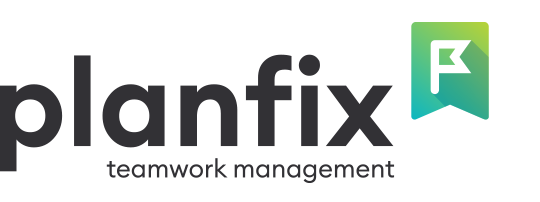
- What is a Real Estate CRM and Why Do You Need It?
- Benefits of Using Real Estate CRM Software
- Top 10 Real Estate CRM Software Solutions
- 1. Planfix
- 2. Zoho CRM
- 3. Pipedrive
- 4. HubSpot
- 5. Salesforce
- 6. LionDesk
- 7. Wise Agent
- 8. Follow Up Boss
- 9. Real Geeks
- 10. Top Producer
- Common Use Cases for Real Estate CRM Software
- FAQ
Real estate professionals need tools that simplify client management, streamline transactions, and boost efficiency. Whether you’re an agent, broker, or part of a development team, choosing the best CRM software for real estate can transform how you manage leads, properties, and transactions. This comprehensive guide explores the top real estate CRM software, highlighting their features, pricing, and use cases to help you find the best real estate management software for your business. From solo agents to large brokerages, we’ve compiled a list of 10 platforms to address diverse needs in residential, commercial, and development sectors. Explore their capabilities to find the ideal fit for your workflow.
What is a Real Estate CRM and Why Do You Need It?
A real estate CRM (Customer Relationship Management) system is a specialized software designed to organize client interactions, automate workflows, and manage sales pipelines for real estate professionals. Unlike generic CRMs, these platforms cater to the unique demands of the industry, such as lead generation from property portals, transaction management, and integration with Multiple Listing Services (MLS). The best CRM for real estate agents centralizes data, saving time and ensuring no lead or deal slips through the cracks.
Why is this critical? Real estate is a relationship-driven business. The top CRM for real estate helps agents nurture leads, track client preferences, and stay organized amidst hectic schedules. For brokers, the best CRM for real estate industry offers team collaboration tools and performance analytics. Developers benefit from the best project management software for real estate development by aligning CRM with project timelines. Without a robust system, manual processes can lead to missed opportunities and inefficiencies, making a top-rated real estate CRM indispensable for staying competitive.
Benefits of Using Real Estate CRM Software
Real estate professionals juggle multiple tasks daily, from client meetings to property showings. The best real estate CRM software streamlines these processes, offering tangible advantages that boost productivity and revenue. Below, we outline the key benefits of adopting a CRM system for real estate.
- Centralized Contact Management: Store all client and lead information in one place, including communication history, property preferences, and deal stages, ensuring easy access and personalized service.
- Automated Workflows: Automate repetitive tasks like follow-up emails, drip campaigns, and task reminders, freeing up time for high-value activities like closing deals.
- Enhanced Lead Generation: Integrate with platforms like Zillow or social media to capture and nurture leads, improving conversion rates for the best CRM for real estate teams.
- Pipeline Visibility: Track deals from initial inquiry to closing with customizable pipelines, a hallmark of the top CRM for commercial real estate.
- Data-Driven Insights: Access analytics on campaign performance, lead sources, and agent productivity to make informed decisions, critical for the best commercial real estate CRM.
- Mobile Accessibility: Manage tasks and client communications on the go with mobile apps, a must-have for the best real estate software for agents.
These benefits empower professionals to focus on building relationships and closing deals. By leveraging the best CRM systems for real estate, you can enhance efficiency and scale your operations effectively.
Top 10 Real Estate CRM Software Solutions
Below, we review 10 of the best real estate CRM programs, starting with Planfix, to help you choose the right platform for your needs. Each solution is evaluated for features, pros, cons, and pricing to provide a clear comparison.
1. Planfix
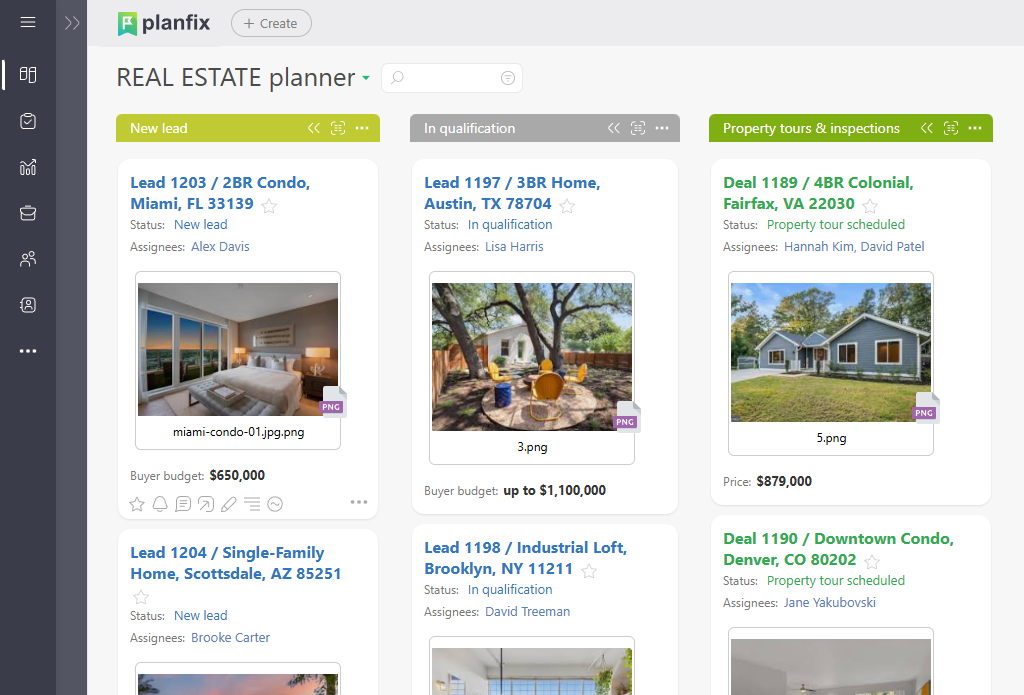
Source: https://planfix.com/
Planfix is a comprehensive platform that redefines real estate management by combining CRM, task management, and project coordination into a single, adaptable system. Unlike traditional CRMs, Planfix offers a holistic solution for real estate professionals, making it a standout choice for the best software for real estate management. Its customizable workflows and robust automation cater to agents, brokers, and developers, ensuring seamless management of leads, deals, and properties. Planfix’s flexibility allows it to serve as the best real estate CRM for teams, integrating client communications, transaction oversight, and team collaboration. Whether you’re a solo agent or part of a large brokerage, Planfix aligns with the dynamic needs of residential, commercial, and development sectors, positioning it as a top real estate management software.
Planfix Overview and Features
Planfix excels as a versatile tool for real estate professionals, offering a suite of features that streamline operations and enhance client relationships. Its design prioritizes adaptability, making it a leading option among real estate CRM platforms. Here’s what Planfix includes:
- Custom Workflows: Create tailored processes for lead nurturing, deal tracking, or project milestones, adaptable to any real estate workflow.
- Task Automation: Automate follow-up emails, reminders, and task assignments to reduce manual work and ensure timely client engagement.
- Lead Management: Capture leads from websites, social media, or MLS platforms, with automatic assignment to agents for quick follow-up.
- Integration Hub: Connects with tools like Gmail, Zapier, and real estate portals for seamless data flow across systems.
- Reporting and Analytics: Generate detailed reports on sales pipelines, campaign performance, and team productivity to drive informed decisions.
- Mobile App: Access all features on iOS and Android, enabling agents to manage tasks and communications on the go.
- Team Collaboration: Share documents, assign tasks, and track progress in real time, fostering efficient teamwork.
Planfix’s strength lies in its ability to unify CRM, task management, and project oversight, making it a best CRM for real estate brokers and agents alike. The platform’s automation reduces repetitive tasks, while its reporting tools provide actionable insights into lead conversion and team performance. Its mobile app ensures accessibility, critical for professionals managing properties and clients in the field. Additionally, Planfix’s integration capabilities allow it to sync with existing tools, enhancing its utility as a best CRM system for real estate. This all-in-one approach minimizes the need for multiple platforms, streamlining operations for small businesses and large firms.
Planfix Pros and Cons
Planfix offers a robust feature set with some considerations for users. Here’s a balanced look at its advantages and limitations:
Pros
- Highly customizable to fit unique real estate workflows.
- Combines CRM, task, and project management for comprehensive functionality.
- Scalable for solo agents, teams, or large brokerages.
- Strong automation reduces manual workload.
- Affordable pricing with a generous free plan.
- Mobile app enhances field productivity.
Cons
- Initial setup may require time due to extensive customization options.
- Learning curve for users new to advanced platforms.
- Fewer native integrations compared to larger competitors.
- Advanced reporting may need configuration for optimal use.
These points underscore Planfix’s versatility as a best CRM for real estate agents while noting areas where users may need to invest time in setup.
Planfix Pricing & Free Version
Planfix offers a free plan that includes basic CRM and task management features, ideal for small teams or solo agents exploring the best real estate software. Paid plans start at $5 per user per month (billed annually), unlocking advanced automation, reporting, and unlimited workflows. A 30-day free trial is available for all paid plans, allowing users to test Planfix’s full capabilities. This pricing structure makes it a cost-effective choice among top CRM for real estate, suitable for businesses of all sizes.
2. Zoho CRM
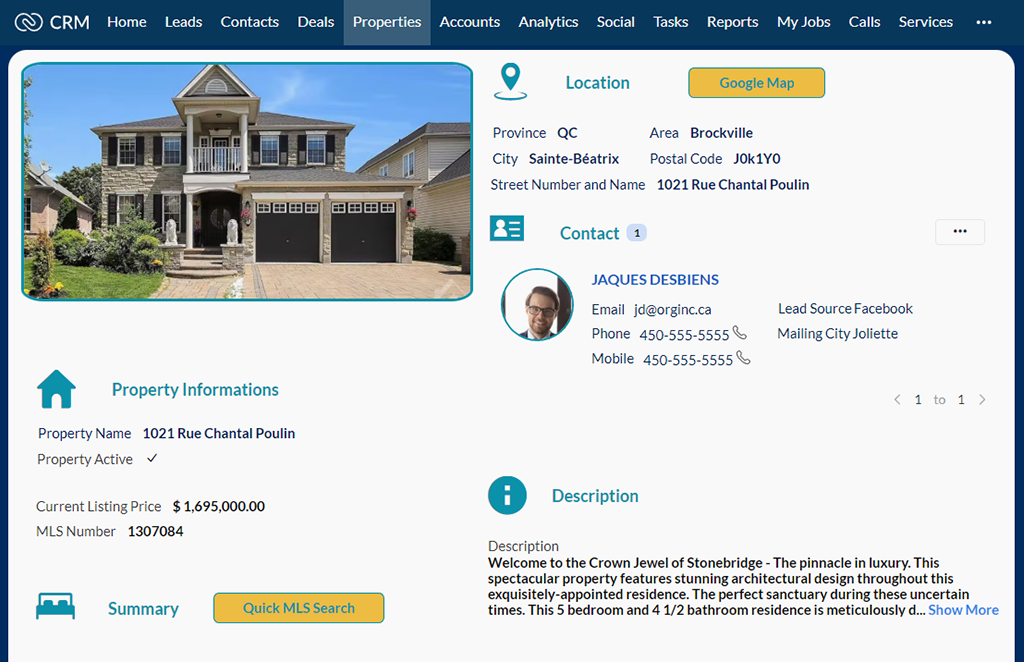
Source: https://www.zoho.com/
Zoho CRM is a widely used platform that supports real estate professionals with tools for lead management, automation, and client tracking. It caters to agents, brokers, and teams seeking a reliable solution for organizing sales pipelines and communications. Known for its affordability and integration capabilities, Zoho CRM is a practical choice for those looking for the best CRM for real estate agents to manage client relationships and transactions efficiently. Its real estate-specific features make it a viable option for professionals aiming to streamline operations without complexity, positioning it among top CRM software for real estate.
Zoho CRM Overview and Features
Zoho CRM provides a balanced set of tools designed to enhance real estate workflows, making it a solid contender among real estate CRM platforms. Its user-friendly interface and customization options appeal to businesses of varying sizes. Here’s what Zoho CRM offers:
- Lead Management: Capture leads from property portals, social media, or websites and organize them into pipelines.
- Automation Tools: Set up automated email responses, drip campaigns, and task assignments to save time.
- Custom Dashboards: Create dashboards to monitor deal progress, lead sources, and team performance.
- Third-Party Integrations: Connect with tools like Zillow, Trulia, DocuSign, and Calendly for seamless operations.
- Email Marketing: Design and send targeted email campaigns to nurture client relationships.
- Mobile App: Access contacts, tasks, and reports on iOS and Android devices for on-the-go management.
Zoho CRM’s strength lies in its ease of use and affordability, making it accessible for solo agents and small teams seeking the best CRM system for real estate. The platform’s automation features help reduce manual tasks, while integrations with real estate tools ensure compatibility with existing systems. Its mobile app supports fieldwork, allowing agents to stay connected with clients and deals. Zoho CRM also provides basic analytics to track performance, which is useful for optimizing lead conversion strategies.
Zoho CRM Pros and Cons
Zoho CRM offers a dependable feature set with some limitations. Here’s a breakdown of its advantages and drawbacks:
Pros
- User-friendly interface with straightforward setup.
- Affordable pricing suitable for small businesses.
- Strong automation for emails and workflows.
- Wide range of integrations with real estate tools.
- Free plan available for basic needs.
Cons
- Advanced features locked behind higher-tier plans.
- Limited real estate-specific templates out of the box.
- Customer support response times can vary.
- Analytics may lack depth for large teams.
These points highlight Zoho CRM’s accessibility while noting areas where users may encounter constraints.
Zoho CRM Pricing & Free Version
Zoho CRM offers a free plan with basic CRM features, suitable for small teams or solo agents testing the platform. Paid plans start at $14 per user per month (billed annually), adding advanced automation, reporting, and integrations. A 15-day free trial is available for paid plans, allowing users to explore the full range of features. This pricing makes Zoho CRM a cost-effective option for real estate professionals seeking a functional CRM system.
3. Pipedrive
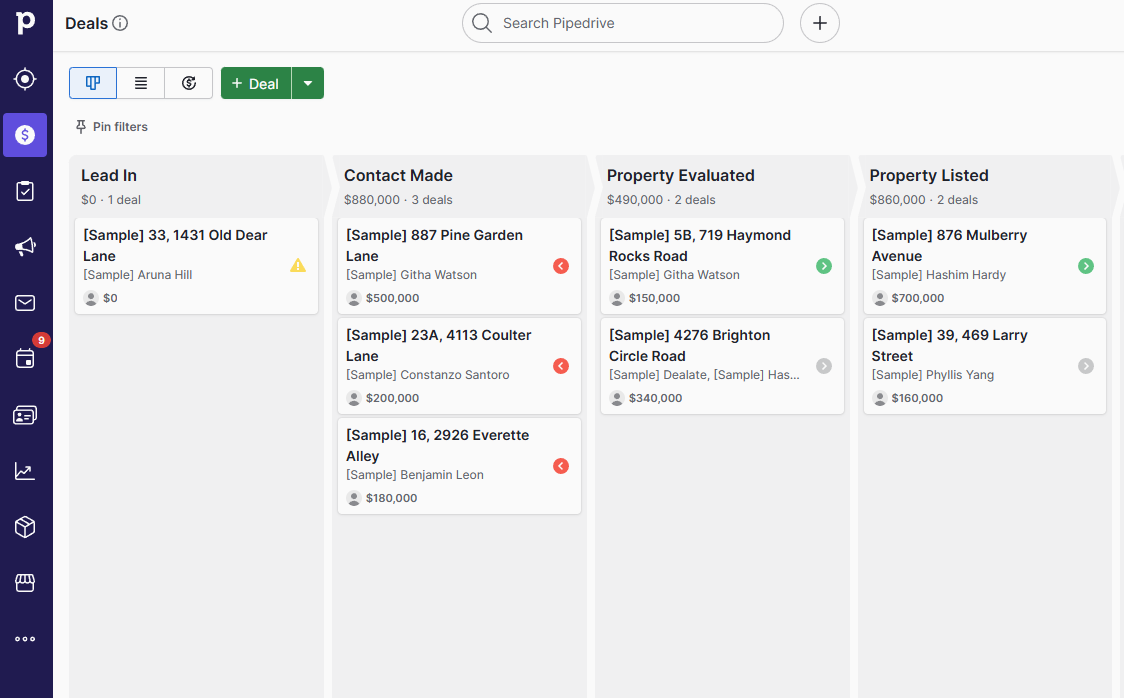
Source: https://www.pipedrive.com/
Pipedrive is a CRM platform focused on pipeline management, designed to help real estate professionals track deals and manage client interactions efficiently. Its visual interface and straightforward tools make it a practical choice for agents and brokers handling complex sales processes, particularly those seeking the best CRM for commercial real estate. Pipedrive supports lead nurturing and communication tracking, offering a streamlined approach to organizing transactions. While not exclusively built for real estate, its adaptability makes it a solid option among top CRM for real estate agents.
Pipedrive Overview and Features
Pipedrive provides a clear, pipeline-centric set of tools tailored for sales-driven workflows, positioning it as a reliable CRM for real estate professionals. Its intuitive design simplifies deal tracking, making it a notable contender in real estate CRM platforms. Here’s what Pipedrive includes:
- Visual Pipelines: Organize deals into customizable pipelines to track progress from inquiry to closing.
- Email Integration: Sync emails and create automated drip campaigns for client follow-ups.
- Lead Tracking: Manage leads from multiple sources with tools for prioritization and assignment.
- Integrations: Connect with tools like DocuSign, Slack, and Zapier for enhanced functionality.
- Activity Reminders: Set tasks and reminders to ensure timely client engagement.
- Mobile App: Access pipelines, contacts, and tasks on iOS and Android for on-the-go management.
Pipedrive’s strength is its user-friendly pipeline interface, which helps agents visualize deal stages and prioritize tasks. The platform’s email tools and integrations support efficient communication, while the mobile app ensures accessibility for fieldwork. Pipedrive’s reporting features provide insights into deal performance, though they are less robust than some competitors. Its flexibility makes it suitable for both residential and commercial real estate needs, aligning with the best real estate software for agents.
Pipedrive Pros and Cons
Pipedrive offers a focused feature set with some limitations. Here’s a balanced look at its advantages and drawbacks:
Pros
- Intuitive pipeline interface simplifies deal tracking.
- Strong email integration for client communications.
- Flexible integrations with popular tools.
- Mobile app supports fieldwork effectively.
- Easy to use for small to medium teams.
Cons
- No free plan available, only a trial.
- Higher starting price compared to some competitors.
- Limited real estate-specific features.
- Reporting tools lack advanced customization.
These points highlight Pipedrive’s strengths in pipeline management while noting areas where it may fall short for specialized needs.
Pipedrive Pricing & Free Version
Pipedrive does not offer a free plan but provides a 14-day free trial for all plans. Paid plans start at $14 per user per month (billed annually), including pipeline management, email integration, and basic reporting. Higher tiers add advanced automation and analytics. This pricing structure makes Pipedrive a moderately priced option for real estate professionals seeking a pipeline-focused CRM.
4. HubSpot
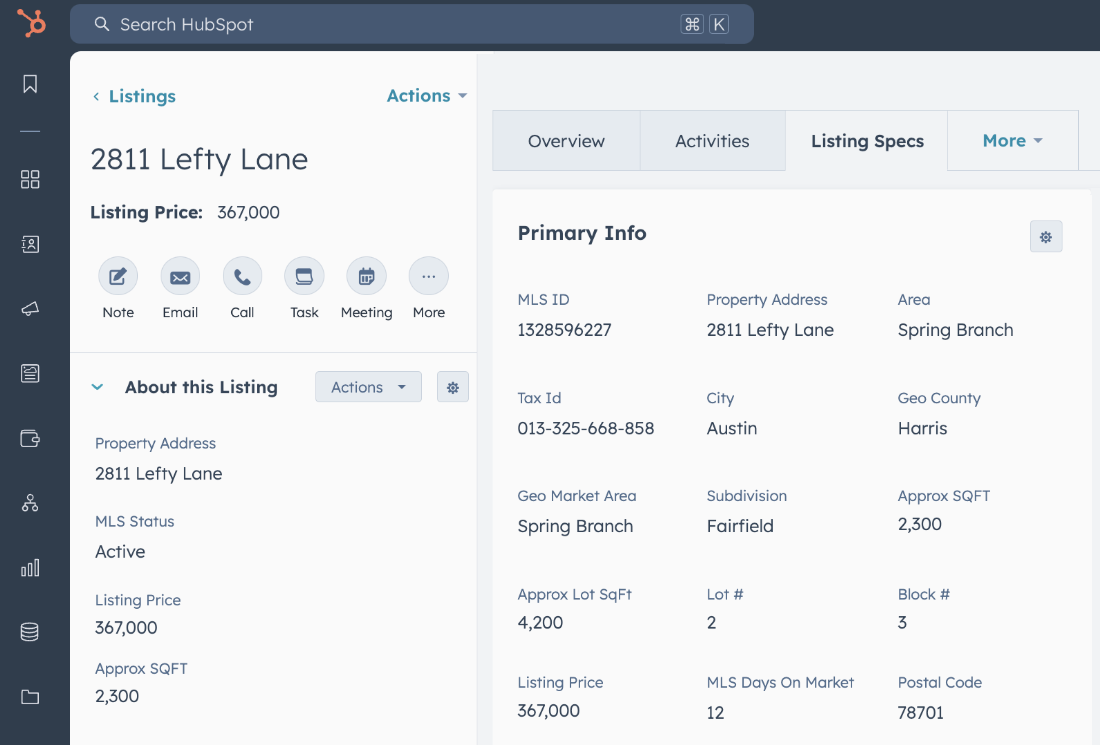
Source: https://www.hubspot.com/
HubSpot is a versatile CRM platform known for its free plan and marketing automation tools, making it a practical choice for real estate professionals focused on lead generation and client management. It caters to agents, brokers, and small teams looking for an accessible solution to organize contacts and streamline communications. While not specifically designed for real estate, HubSpot’s scalability and integration options make it a strong contender among top CRM platforms for real estate, particularly for those prioritizing marketing-driven growth.
HubSpot Overview and Features
HubSpot offers a robust set of tools centered on CRM and marketing, positioning it as a reliable option for real estate CRM platforms. Its straightforward interface and free tier appeal to solo agents and growing teams. Here’s what HubSpot includes:
- Contact Management: Store and organize client details, communication history, and deal stages in a centralized database.
- Email Marketing: Create and send targeted email campaigns with templates for lead nurturing.
- Lead Capture: Build landing pages and forms to collect leads from websites or social media.
- Integrations: Connect with over 1,000 apps, including Calendly, Zapier, and real estate tools.
- Pipeline Tracking: Monitor deals with customizable pipelines for clear visibility.
- Mobile App: Access contacts, tasks, and reports on iOS and Android for on-the-go management.
HubSpot’s strength lies in its free CRM and marketing tools, which are ideal for agents seeking the best CRM for real estate agents on a budget. The platform’s lead capture and email features support inbound marketing, while integrations ensure compatibility with existing workflows. Its mobile app enables fieldwork, though advanced features require paid plans. HubSpot’s reporting is basic but sufficient for small teams tracking lead sources and deal progress.
HubSpot Pros and Cons
HubSpot provides a solid feature set with some constraints. Here’s a balanced look at its advantages and drawbacks:
Pros
- Free CRM plan with core features.
- Strong marketing automation for lead generation.
- Extensive integration options.
- User-friendly interface with minimal setup.
- Scalable for growing teams.
Cons
- Advanced features require costly paid plans.
- Not tailored specifically for real estate needs.
- Pricing can escalate for larger teams.
- Limited real estate-specific templates.
These points highlight HubSpot’s accessibility while noting areas where specialized needs may require additional investment.
HubSpot Pricing & Free Version
HubSpot offers a free CRM plan with basic contact management, email tracking, and pipeline tools, making it a great starting point for the best real estate software for agents. Paid plans start at $50 per month (billed annually) for advanced marketing, automation, and reporting features. A 14-day free trial is available for paid plans. This pricing structure suits small businesses but may become expensive for larger teams needing premium features.
5. Salesforce
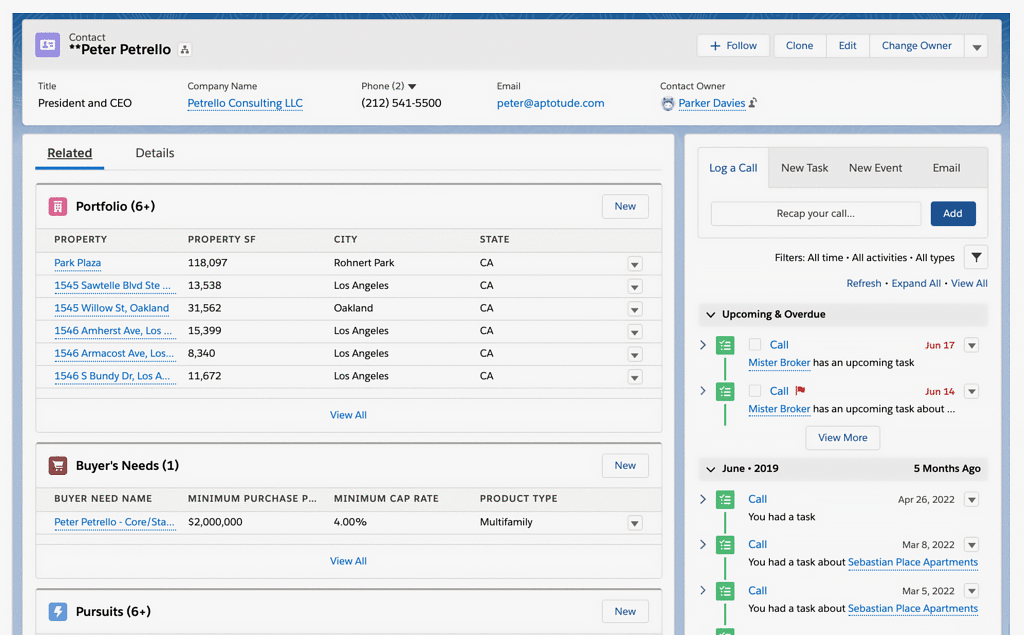
Source: https://salesforce.com/
Salesforce is a powerful CRM platform designed for large-scale real estate operations, offering advanced customization and analytics for managing complex client relationships and transactions. It suits brokers, developers, and large teams seeking a robust solution for the best CRM for commercial real estate. While its extensive features cater to enterprise needs, Salesforce’s flexibility allows it to adapt to various real estate workflows, making it a notable option among top real estate CRM software.
Salesforce Overview and Features
Salesforce provides a comprehensive suite of tools focused on scalability and data-driven decision-making, positioning it as a strong choice for real estate CRM platforms. Its cloud-based system supports intricate workflows for sizable teams. Here’s what Salesforce offers:
- Lead Scoring: Prioritize leads based on AI-driven insights from multiple data sources.
- Custom Apps: Build tailored applications for specific real estate processes, like property management.
- Analytics Dashboard: Access detailed reports on sales performance, lead conversion, and market trends.
- MLS Integration: Sync with Multiple Listing Services for real-time property data.
- Workflow Automation: Automate client follow-ups, deal approvals, and task assignments.
- Mobile Access: Manage deals, reports, and communications via iOS and Android apps.
Salesforce’s strength lies in its customization and analytics, which are ideal for large brokerages or developers needing the best real estate development software. The platform’s AI tools help identify high-potential leads, while integrations with MLS and other systems streamline data flow. Its mobile app supports fieldwork, though the platform’s complexity may require dedicated setup time. Salesforce’s reporting capabilities provide deep insights, making it suitable for data-driven real estate strategies.
Salesforce Pros and Cons
Salesforce offers an extensive feature set with some considerations. Here’s a balanced look at its advantages and drawbacks:
Pros
- Highly customizable for complex real estate needs.
- Advanced analytics for strategic decision-making.
- Seamless integration with MLS and third-party tools.
- Scalable for large teams and enterprises.
- Cloud-based for reliable access.
Cons
- High cost, especially for small businesses.
- Steep learning curve for new users.
- Setup requires significant time and expertise.
- Not optimized for solo agents.
These points underscore Salesforce’s enterprise-grade capabilities while noting its challenges for smaller operations.
Salesforce Pricing & Free Version
Salesforce does not offer a free plan but provides a 30-day free trial for all plans. Paid plans start at $25 per user per month (billed annually), including core CRM features, lead scoring, and basic integrations. Higher tiers add advanced analytics, AI tools, and custom app development. This pricing makes Salesforce a premium option for real estate professionals seeking a high-powered CRM system.
6. LionDesk
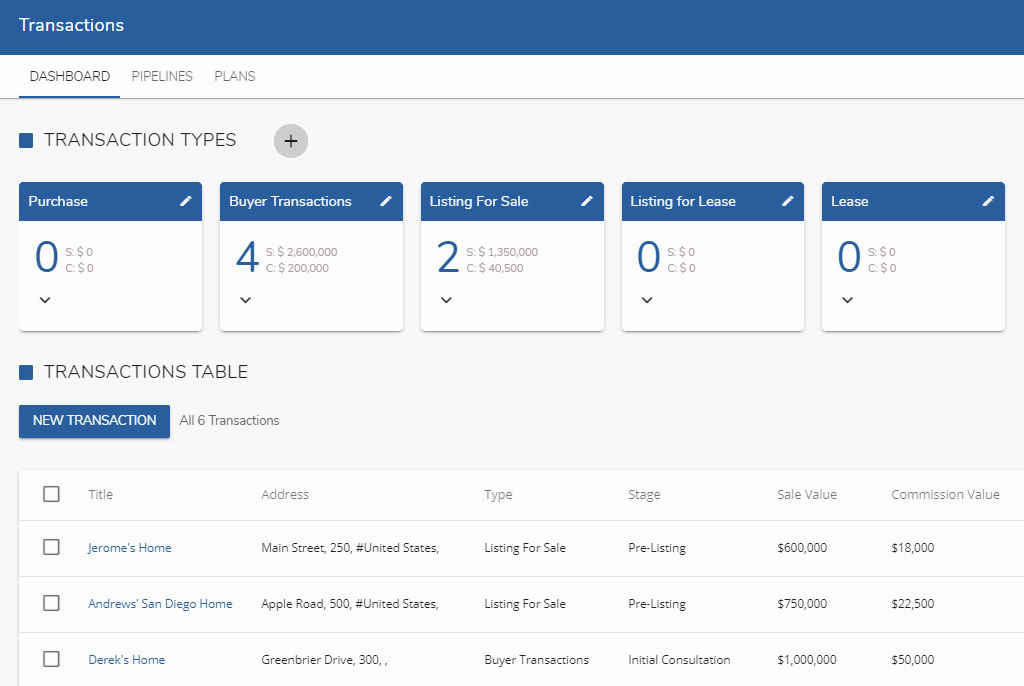
Source: https://liondesk.com/
LionDesk is a budget-friendly CRM platform tailored for real estate professionals, offering tools for lead nurturing, automation, and transaction management. It’s designed for solo agents and small teams seeking an accessible solution for the best software for real estate agents. With features like automated texting and video emails, LionDesk focuses on simplifying client communications, making it a practical choice among real estate CRM platforms.
LionDesk Overview and Features
LionDesk provides a straightforward set of tools optimized for real estate workflows, positioning it as a reliable option for the best real estate software for agents. Its ease of use and affordability appeal to smaller operations. Here’s what LionDesk includes:
- Lead Nurturing: Automate drip campaigns via email and text to engage leads consistently.
- Video Messaging: Send personalized video emails and texts to build stronger client connections.
- Transaction Tracking: Organize documents and deadlines for smoother deal closings.
- Portal Integrations: Connect with Zillow, Realtor.com, and other platforms for lead capture.
- Task Management: Assign and track tasks to stay on top of client follow-ups.
- Mobile App: Manage leads, communications, and tasks on iOS and Android devices.
LionDesk’s strength lies in its simplicity and cost-effectiveness, making it ideal for agents who need a user-friendly CRM without advanced complexity. The platform’s video messaging and texting features enhance client engagement, while integrations with real estate portals streamline lead generation. Its mobile app supports fieldwork, allowing agents to stay responsive. LionDesk’s reporting is basic but sufficient for tracking lead progress and campaign performance.
LionDesk Pros and Cons
LionDesk offers a focused feature set with some limitations. Here’s a balanced look at its advantages and drawbacks:
Pros
- Affordable pricing for small budgets.
- Easy-to-use interface with quick setup.
- Video and text features boost client engagement.
- Integrates with key real estate portals.
- Mobile app supports on-the-go management.
Cons
- Limited advanced automation options.
- Fewer integrations compared to larger platforms.
- Reporting lacks depth for complex needs.
- Not ideal for large teams.
These points highlight LionDesk’s accessibility while noting areas where it may fall short for bigger operations.
LionDesk Pricing & Free Version
LionDesk does not offer a free plan but provides a 30-day free trial for all plans. Paid plans start at $39 per month (billed annually), including lead nurturing, transaction tracking, and video messaging. Higher tiers add advanced integrations and reporting. This pricing makes LionDesk a cost-effective option for solo agents and small teams seeking a functional CRM system.
7. Wise Agent
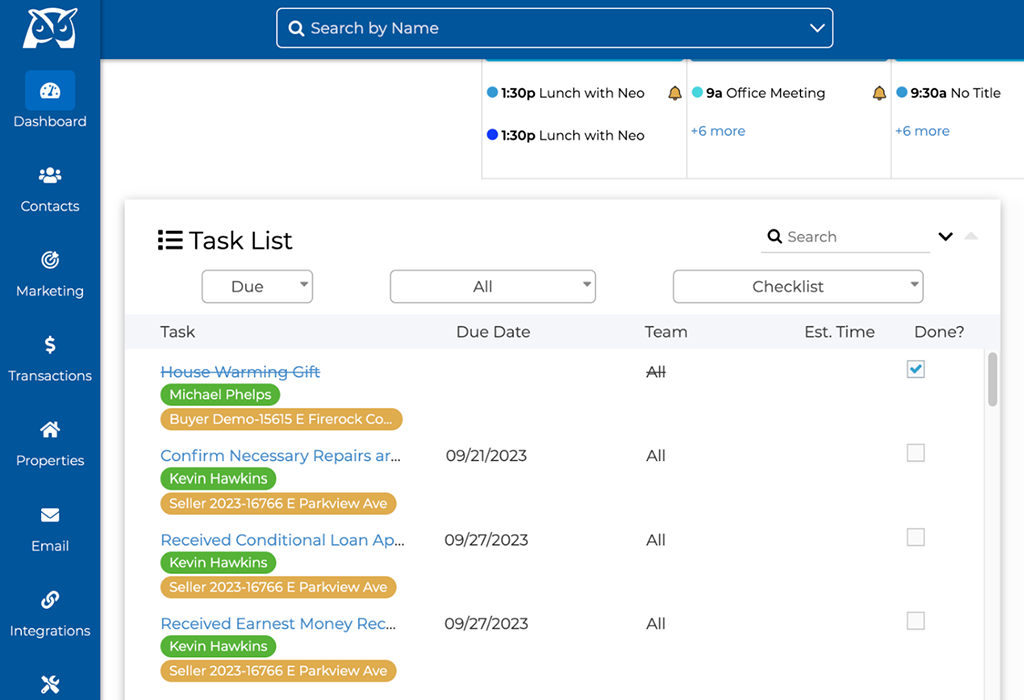
Source: https://wiseagent.com
Wise Agent is an all-in-one CRM platform designed specifically for real estate professionals, offering tools for lead management, marketing, and transaction coordination. It caters to solo agents and small teams looking for a cost-effective solution to streamline client interactions and deal processes, making it a solid choice for the top CRM for real estate agents. Its real estate-focused features and simplicity position it as a practical option among the best real estate CRM software.
Wise Agent Overview and Features
Wise Agent provides a comprehensive set of tools tailored to real estate workflows, making it a reliable contender in real estate CRM platforms. Its intuitive design and affordability appeal to smaller operations. Here’s what Wise Agent includes:
- Lead Organization: Import and categorize leads from multiple sources for efficient follow-up.
- Marketing Campaigns: Create automated email drip campaigns and newsletters to nurture clients.
- Transaction Management: Track deal milestones, documents, and deadlines in one place.
- Third-Party Sync: Integrate with tools like Zillow, Dotloop, and Google Calendar for seamless workflows.
- Landing Pages: Build custom landing pages to capture leads from websites or ads.
- Mobile Access: Manage leads, tasks, and communications via iOS and Android apps.
Wise Agent’s strength lies in its real estate-specific functionality and ease of use, ideal for agents seeking the best real estate software for agents without a steep learning curve. The platform’s transaction management tools help streamline closings, while marketing features support consistent client engagement. Its mobile app ensures accessibility for fieldwork, though reporting capabilities are basic compared to enterprise-grade CRMs. Wise Agent’s integrations enhance its compatibility with common real estate tools.
Wise Agent Pros and Cons
Wise Agent offers a practical feature set with some limitations. Here’s a balanced look at its advantages and drawbacks:
Pros
- Affordable pricing for small teams.
- Real estate-focused features simplify workflows.
- Easy-to-navigate interface with quick setup.
- Strong customer support for users.
- Integrates with key real estate tools.
Cons
- No free plan, only a trial.
- Limited advanced analytics for larger teams.
- Interface design feels slightly dated.
- Fewer integrations than bigger platforms.
These points highlight Wise Agent’s suitability for small-scale operations while noting areas where it may lack for complex needs.
Wise Agent Pricing & Free Version
Wise Agent does not offer a free plan but provides a 14-day free trial for its full feature set. Paid plans start at $49 per month (billed annually), including lead management, marketing tools, and transaction tracking. This pricing makes Wise Agent a budget-friendly option for real estate professionals seeking a dedicated CRM system.
8. Follow Up Boss
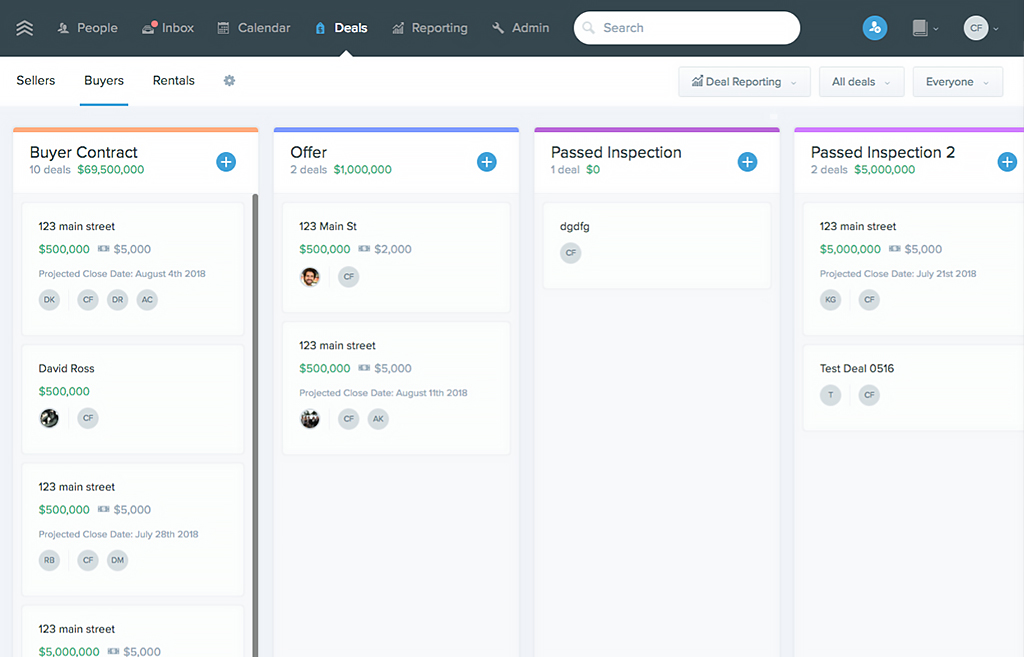
Source: https://www.followupboss.com
Follow Up Boss is a CRM platform tailored for real estate professionals, focusing on lead management and communication tracking to streamline client interactions. It’s designed for solo agents and small teams seeking a straightforward solution for the best CRM systems for real estate agents. With its emphasis on centralized communication and automation, Follow Up Boss is a practical choice among top real estate CRM software for those prioritizing responsiveness and organization.
Follow Up Boss Overview and Features
Follow Up Boss offers a focused set of tools optimized for real estate workflows, making it a reliable option in real estate CRM platforms. Its clean interface and communication-driven features appeal to smaller operations. Here’s what Follow Up Boss includes:
- Communication Hub: Centralize emails, calls, and texts to track all client interactions in one place.
- Lead Automation: Set up automated responses and drip campaigns to nurture leads efficiently.
- Pipeline Overview: Visualize deal stages with customizable pipelines for clear tracking.
- Website Integration: Connect with IDX websites and platforms like Zillow for lead capture.
- VoIP Dialer: Make calls directly from the platform with call logging for follow-ups.
- Mobile App: Access leads, communications, and tasks on iOS and Android devices.
Follow Up Boss’s strength lies in its communication-focused design, ideal for agents needing the best real estate software for agents to stay responsive. The platform’s automation and texting features enhance lead engagement, while website integrations simplify lead generation. Its mobile app supports fieldwork, ensuring agents can manage deals on the go. Reporting is basic but sufficient for tracking lead activity and team performance.
Follow Up Boss Pros and Cons
Follow Up Boss provides a streamlined feature set with some limitations. Here’s a balanced look at its advantages and drawbacks:
Pros
- Intuitive interface with easy setup.
- Strong communication tracking for client interactions.
- Effective automation for lead nurturing.
- Mobile app enhances fieldwork productivity.
- Good for small teams and solo agents.
Cons
- No free plan, only a trial.
- Limited lead generation tools compared to competitors.
- Fewer integrations for advanced workflows.
- Basic reporting for complex needs.
These points highlight Follow Up Boss’s simplicity while noting areas where it may not suit larger or more complex operations.
Follow Up Boss Pricing & Free Version
Follow Up Boss does not offer a free plan but provides a 14-day free trial for all plans. Paid plans start at $69 per month (billed annually), including communication tracking, automation, and pipeline management. Higher tiers add advanced integrations and team features. This pricing makes Follow Up Boss a moderately priced option for real estate professionals seeking a communication-focused CRM.
9. Real Geeks
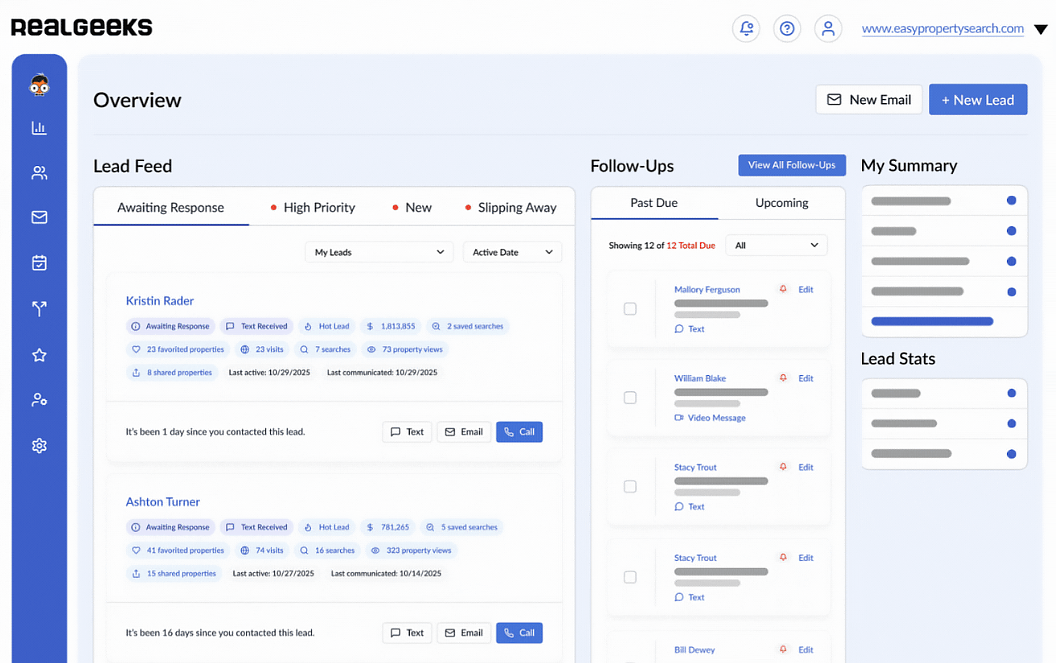
Source: https://www.realgeeks.com/
Real Geeks is a CRM platform that combines lead generation with website tools, designed for real estate professionals focused on online marketing and client engagement. It caters to agents and small teams seeking an integrated solution for the best CRM for real estate agents. With features like IDX websites and AI-driven texting, Real Geeks stands out among real estate CRM systems for those prioritizing digital lead capture and follow-up.
Real Geeks Overview and Features
Real Geeks offers a targeted set of tools tailored for real estate marketing and CRM, making it a solid option for the best real estate software for agents. Its focus on website integration and automation appeals to tech-savvy professionals. Here’s what Real Geeks includes:
- IDX Websites: Build customizable websites with property search and lead capture forms.
- AI Texting: Use an AI chatbot for instant lead responses via text, available 24/7.
- Lead Management: Organize leads from websites, social media, or ads into pipelines.
- Facebook Ads: Create targeted ad campaigns to drive traffic and generate leads.
- Deal Tracking: Monitor sales pipelines with customizable stages for deal progress.
- Mobile Access: Manage leads and communications via iOS and Android apps.
Real Geeks’s strength lies in its lead generation capabilities, particularly through its IDX websites and AI texting, which help agents capture and engage leads quickly. The platform’s Facebook ad tools support online marketing, while pipeline tracking keeps deals organized. Its mobile app ensures accessibility for fieldwork, though setup can be complex for beginners. Real Geeks’s reporting is functional but less robust for advanced analytics needs.
Real Geeks Pros and Cons
Real Geeks provides a marketing-focused feature set with some limitations. Here’s a balanced look at its advantages and drawbacks:
Pros
- Strong lead generation via IDX websites.
- AI texting enhances lead responsiveness.
- Effective Facebook ad integration.
- Mobile app supports on-the-go management.
- Tailored for real estate marketing.
Cons
- Complex initial setup for websites.
- Pricing lacks transparency upfront.
- Limited advanced automation features.
- Fewer integrations than larger platforms.
These points highlight Real Geeks’s digital marketing strengths while noting areas where it may require additional effort or resources.
Real Geeks Pricing & Free Version
Real Geeks does not offer a free plan or trial, requiring users to contact the provider for pricing details. Plans typically start around $249 per month (billed annually), including IDX websites, CRM, and AI texting features. This pricing positions Real Geeks as a higher-cost option for real estate professionals seeking a marketing-driven CRM system.
10. Top Producer
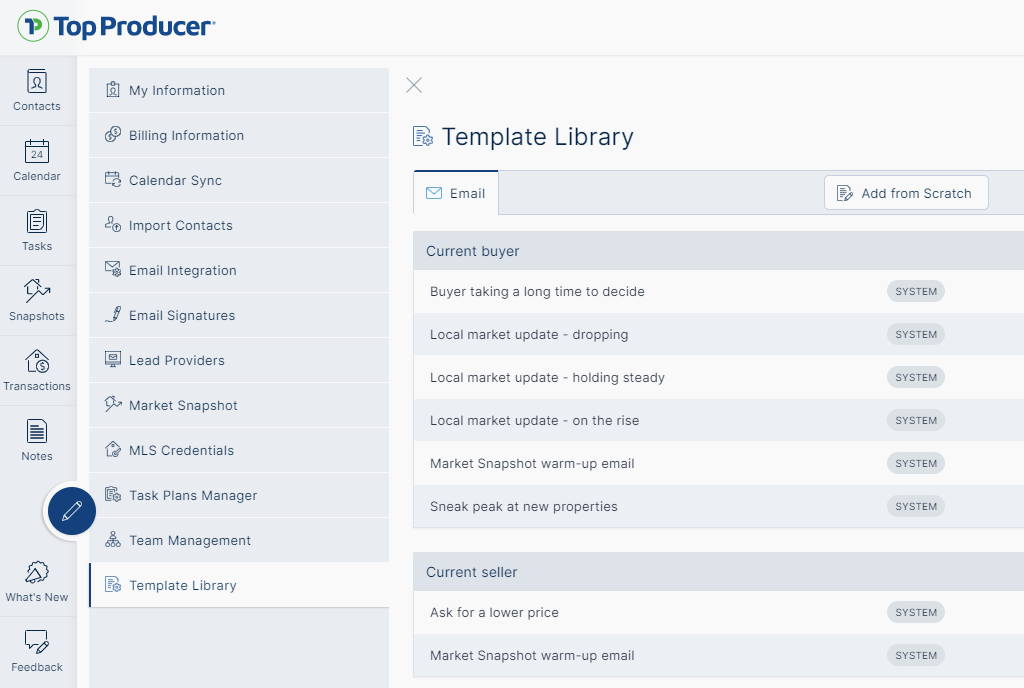
Source: https://www.topproducer.com/
Top Producer is a well-established CRM platform designed for real estate professionals, offering tools for lead generation, client management, and marketing automation. It’s tailored for agents and brokers seeking a reliable solution for the best CRM for real estate brokers. With its focus on MLS integration and automated market reports, Top Producer is a practical choice among CRM platforms for real estate, particularly for those managing established client bases.
Top Producer Overview and Features
Top Producer provides a focused set of tools optimized for real estate workflows, making it a solid contender in the best real estate CRM programs. Its user-friendly design and real estate-specific features appeal to professionals handling residential or commercial deals. Here’s what Top Producer includes:
- Lead Generation: Capture leads from MLS, social media, or website forms with automated assignment.
- Market Reports: Send automated neighborhood reports to engage clients with property insights.
- Drip Campaigns: Create email sequences to nurture leads and maintain client relationships.
- MLS Sync: Integrate with Multiple Listing Services for real-time property data access.
- Client Follow-Ups: Schedule tasks and reminders to ensure consistent communication.
- Mobile App: Access leads, reports, and tasks on iOS and Android devices.
Top Producer’s strength lies in its real estate-centric features, such as MLS integration and market reports, which help agents stay relevant to clients. The platform’s drip campaigns and task scheduling support consistent lead nurturing, while the mobile app ensures accessibility for fieldwork. Reporting is straightforward, offering insights into lead activity and campaign performance, though it may lack depth for advanced needs.
Top Producer Pros and Cons
Top Producer offers a practical feature set with some limitations. Here’s a balanced look at its advantages and drawbacks:
Pros
- Real estate-focused with strong MLS integration.
- Automated market reports enhance client engagement.
- User-friendly interface with quick setup.
- Mobile app supports on-the-go productivity.
- Affordable for its feature set.
Cons
- Limited direct integrations compared to competitors.
- Some features require higher-tier plans.
- Reporting lacks advanced customization.
- Less suited for beginners needing extensive guidance.
These points highlight Top Producer’s suitability for established agents while noting areas where it may not fully meet complex requirements.
Top Producer Pricing & Free Version
Top Producer does not offer a free plan but provides a free trial for its features. Paid plans start at $179 per month (billed annually), including lead generation, MLS integration, and drip campaigns. Higher tiers add advanced reporting and team features. This pricing makes Top Producer a moderately priced option for real estate professionals seeking a dedicated CRM system.
Common Use Cases for Real Estate CRM Software
Real estate professionals handle a wide range of tasks, from building client relationships to closing deals. Best real estate CRM systems streamline these processes by providing tools tailored to industry needs. Exploring common use cases can guide you in choosing a platform that aligns with your workflow, whether you’re an agent, broker, or developer. The following list outlines key ways CRMs support real estate operations.
- Lead Generation and Nurturing: Collect leads from platforms like Zillow, social media, or open houses and engage them with automated email or text campaigns to build trust and drive conversions.
- Deal Tracking: Monitor sales pipelines from initial contact to closing, ensuring all opportunities are organized and followed up on efficiently.
- Client Profile Management: Store detailed client information, including preferences and communication history, to deliver personalized service and strengthen relationships.
- Marketing Campaigns: Create and deploy targeted email, text, or social media outreach to maintain consistent lead engagement and promote listings.
- Transaction Coordination: Centralize documents, track deadlines, and manage signatures to streamline deal closings and reduce administrative errors.
- Team Coordination: Facilitate task assignments, document sharing, and performance tracking to improve collaboration across small or large teams.
These use cases demonstrate how real estate CRM platforms enhance efficiency and organization in real estate. By selecting a system that matches your primary needs, you can improve productivity, maintain stronger client connections, and achieve better outcomes in your business.
Selecting the best CRM software for real estate agents depends on your business size, goals, and budget. Planfix stands out as a versatile, all-in-one solution, combining CRM, task, and project management for unparalleled flexibility. By focusing on features like lead management, automation, and integrations, you can find the top real estate CRM software to streamline operations and boost sales. Test free trials to ensure the platform aligns with your workflow, ensuring long-term success in the competitive real estate market.
FAQ
What is a Real Estate CRM?
A real estate CRM is software that manages client relationships, leads, and transactions, tailored for agents, brokers, and developers.
It centralizes property, deal, and communication data in one place so teams can work faster and keep every prospect moving.
Why Do Real Estate Agents Need a CRM?
CRMs streamline lead management, automate tasks, and provide analytics, helping agents save time and close more deals.
With a real estate CRM, you can track every inquiry from first contact to closing and make sure no high-intent lead is lost.
What Features Should I Look for in a CRM?
When choosing the best CRM for real estate, consider features like lead capture and tracking, contact management, email and SMS automation, task reminders, sales pipeline visualization, integration with MLS and real estate portals, and mobile access.
Also make sure the CRM supports detailed reporting on leads, properties, and deals so you can double down on the channels that convert.
How Does a CRM Help with Lead Generation?
A real estate CRM helps capture leads from various channels—web forms, landing pages, social media, or real estate portals—and automatically adds them to your database.
It can then segment and nurture those leads with targeted emails, drip campaigns, and follow-up reminders to keep them engaged until they’re ready to act.
Do CRMs Offer Reporting and Analytics Tools?
Yes, most real estate CRMs include dashboards and reporting tools to help you monitor performance—track leads, conversion rates, revenue, time to close, and more.
These insights can guide better decision-making and improve sales strategies over time.
